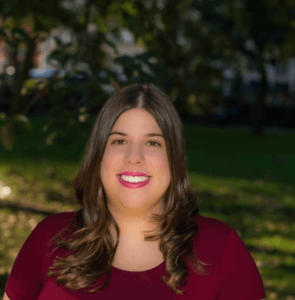How adept are you at understanding emotions when you feel them?
When we’re talking about what we’re feeling, typically we’re talking about 5 core emotions: anger, disgust, fear, happiness, sadness, and surprise.
(There are of course secondary emotions which would cover things like jealousy or guilt). But learning to recognize what we’re feeling (and then, when we’ve mastered that, why we’re feeling it in the first place) isn’t as simple as it seems!
One of the main reasons for this is of course, as we age, we’re taught (either directly or through social cues) that we shouldn’t express what we’re feeling as freely as we did as children or infants. This, in part, causes a sort of repression of exploring our emotions, which hinders us from being able to recognize and understand them as they come up.
Today, I want you to think about your process for understanding emotions. Particularly: do you let yourself feel them fully, explore the root of them and what they might mean for you? Many of us find extreme emotions to be overwhelming, unmanageable, or inconvenient. But pushing the emotions away doesn’t get rid of them, it just postpones the confrontation to another day.
Understanding emotions can help us manage them better, understand ourselves better, and learn our own needs better.
When our emotions overpower us, we feel out of control.
Sometimes we overcompensate by pushing them to the side completely–but this isn’t actually better than being overwhelmed by them! If we can, taking time to understand our emotions will help us with our own self reflection and assessing our needs.
So how can you start to practice recognizing + understanding emotions when they come up?
Consider the origin:
If you’re upset, what tipped you over the edge? Take time to think about whatever it was that seemed to open the dam. Then consider *why* it would have made you feel whatever emotion it is that you’re experiencing. Were there other incidents leading up to this with similar feelings? Learning where the emotion comes from helps us feel a little less out of control–it’s not a random emotion overpowering you, there are causes to explore and incorporate into your self care.
Take time to notice how the emotion feels:
Once you’ve considered the origin of what you’re feeling, take time to notice how the emotion you’re experiencing actually presents itself, both mentally + physically. This way you can recognize it easier as it comes up in the future!
Remember to challenge your beliefs:
Distorted beliefs + views of our experiences can influence our emotions and make them feel out of our control. The example psychologist Albert Ellis gives for this is: a friend cancels on you for dinner; when that happens you believe no one likes you which in turn makes you sad, embarrassed, rejected, etc. But when you take time to examine why you’re feeling that way you can give yourself both time to feel the instinctual reaction, and understand the situation the way it actually is, which is just: someone couldn’t make dinner tonight. While it is sad, plans are canceled and you won’t get to see your friend as you planned, more likely than not, something last minute came up for them and it has nothing to do with how they feel about you.
“Our feelings are not there to be cast out or conquered. They’re there to be engaged and expressed with imagination and intelligence.” -T.K. Coleman

Alyssa Mairanz, LMHC, DBTC
Alyssa Mairanz provides counseling and therapy services for life transitions, relationship issues, self esteem, depression, anxiety, and DBT and Psychodynamic therapy in a NYC group practice in the Flatiron District near Madison Square Park. She also serves the Village, Chelsea, Union Square, the Financial District and the surrounding areas.
Empower Your Mind Therapy’s mission is to helps our clients build the life they want and find more happiness and satisfaction.



